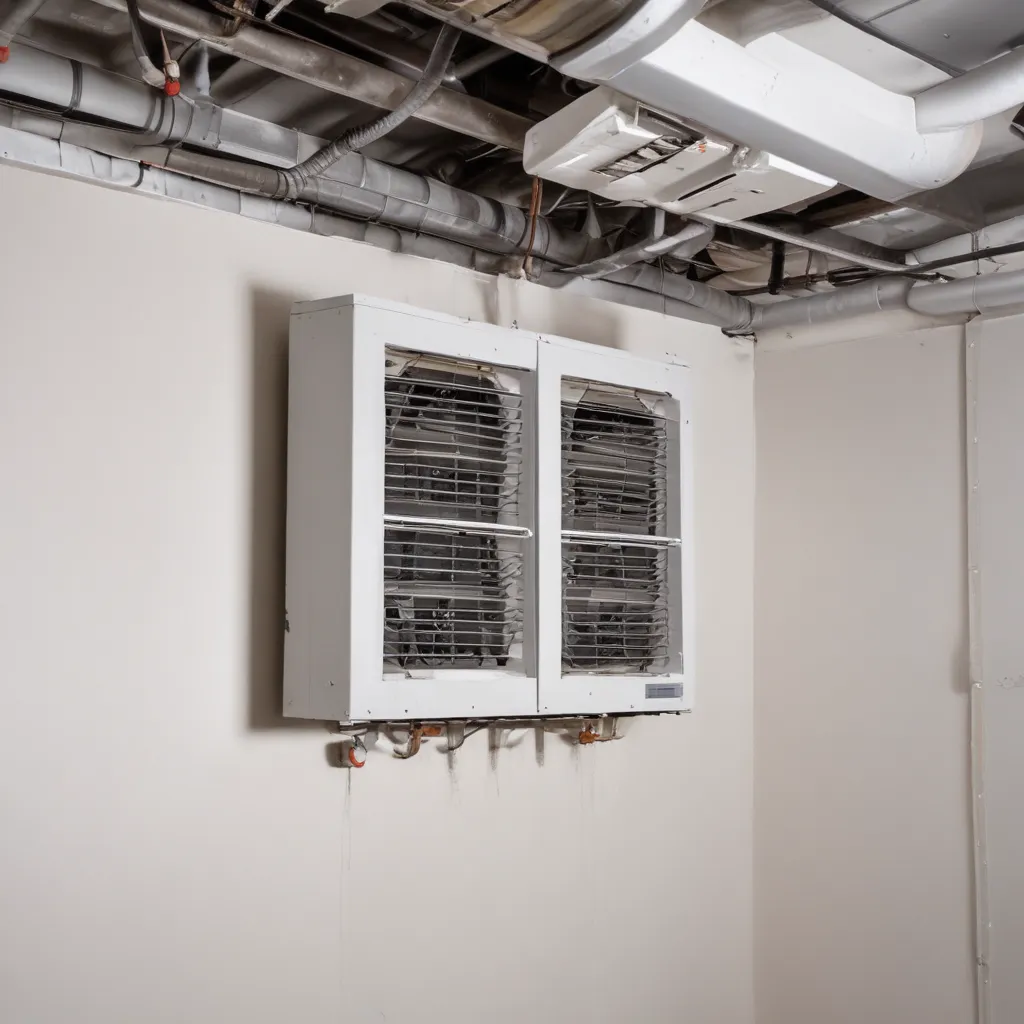
One of the most insidious threats to an HVAC system’s performance and your indoor air quality is the presence of mould. We learned this the hard way when dealing with complex HVAC issues… Mould can take root within the dark, damp confines of ductwork, air handlers, and coils, compromising efficiency and releasing spores that circulate throughout your home or facility. Proactive maintenance is the key to preventing and eliminating these unwanted infestations, ensuring your HVAC system operates at peak performance while safeguarding indoor air quality.
Now, this might seem counterintuitive when dealing with air conditioning systems…
Understanding the Mould Menace
Mould is a type of fungus that thrives in moist environments, feeding on organic matter like insulation, wood, and even the dust that accumulates within HVAC systems. Once it takes hold, mould can rapidly spread, producing airborne spores that trigger allergic reactions, respiratory issues, and other health concerns for occupants.
The warm, humid conditions created by HVAC equipment provide an ideal breeding ground for mould growth. Condensation on coils, leaky ductwork, and poor ventilation all contribute to the problem. Left unchecked, mould can deteriorate essential components, reduce airflow, and even compromise the structural integrity of your building.
Implementing Preventative Maintenance
The most effective way to combat mould in your HVAC system is through a comprehensive preventative maintenance program. This proactive approach involves regular inspections, cleaning, and targeted interventions to address potential issues before they escalate.
Routine Inspections
Routine inspections by a qualified HVAC technician are the foundation of your mould prevention strategy. During these inspections, they will thoroughly examine your system, looking for signs of moisture buildup, microbial growth, and other potential problem areas. This allows them to identify and address issues before they lead to mould infestation.
Coil Cleaning
The evaporator and condenser coils in your HVAC system are prime targets for mould growth due to the constant moisture present. Regularly cleaning these coils, using specialized tools and antimicrobial solutions, helps eliminate existing growth and prevents future infestations.
Ductwork Maintenance
Leaks and gaps in your ductwork can allow moisture to enter the system, creating ideal conditions for mould. Sealing and insulating ductwork helps maintain proper airflow and humidity levels, making the environment less hospitable for mould.
Air Filter Replacement
Replacing air filters on a regular schedule is crucial for maintaining indoor air quality and preventing the circulation of mould spores. As filters become clogged, they restrict airflow and allow contaminants to bypass the filtration system.
Drainage System Upkeep
Proper drainage is essential for preventing water accumulation and mitigating the risk of mould. Technicians should inspect condensate lines, pumps, and drain pans, clearing any blockages and ensuring efficient removal of excess moisture.
Ventilation and Humidity Control
Adequate ventilation and proper humidity management are vital for creating an unfavourable environment for mould growth. double-check that your HVAC system is properly sized and balanced to maintain optimal airflow and humidity levels throughout your home or facility.
Addressing Existing Mould Infestations
Despite your best preventative efforts, mould may still find a way to take hold in your HVAC system. In such cases, it’s crucial to act quickly and enlist the help of professional mould remediation services.
These specialists will conduct a thorough inspection to identify the extent of the mould growth and its underlying causes. They will then develop a comprehensive plan to safely and effectively remove the mould, disinfect affected areas, and implement measures to prevent future infestations.
The mould remediation process typically involves:
- Containment and isolation of the affected area to prevent the spread of spores
- Removal of contaminated materials, such as insulation or ductwork, using specialized equipment and techniques
- Thorough cleaning and disinfection of the HVAC system components
- Addressing the root causes of moisture intrusion to eliminate the conditions that fostered the mould growth
Once the mould has been eliminated, the HVAC system should be thoroughly cleaned, sanitized, and tested to double-check that it is operating at optimal efficiency and without the risk of future mould problems.
Investing in HVAC System Upgrades
In some cases, upgrading your HVAC system may be the best long-term solution for preventing mould growth and ensuring optimal indoor air quality. Newer, more energy-efficient equipment often features advanced features that make the system less susceptible to moisture-related issues.
Consider upgrading to HVAC systems with:
- Improved Dehumidification Capabilities: Systems that can effectively control indoor humidity levels are less prone to condensation buildup and mould growth.
- Enhanced Airflow Management: Properly balanced airflow and adequate ventilation help prevent stagnant, humid conditions that encourage mould proliferation.
- Advanced Filtration Technologies: High-efficiency particulate air (HEPA) filters and ultraviolet (UV) light systems can capture and neutralize mould spores, improving indoor air quality.
- Predictive Maintenance Analytics: Smart HVAC systems with advanced diagnostics can identify potential issues, such as coil fouling or ductwork leaks, before they lead to mould problems.
By investing in these types of HVAC upgrades, you can significantly reduce the risk of mould growth, maintain a healthier indoor environment, and double-check that your system operates at peak efficiency for years to come.
Partnering with US Air Contractors
At US Air Contractors, we understand the importance of proactive HVAC maintenance in preventing mould growth and safeguarding indoor air quality. Our team of experienced technicians specializes in comprehensive maintenance, repair, and upgrade services to keep your system running at its best.
Whether you’re dealing with an existing mould problem or looking to implement preventative measures, we can help. Contact us today to schedule a consultation and learn how we can tailor our services to your specific needs. Together, we’ll double-check that your HVAC system remains a reliable, mould-free source of comfort and indoor air quality for years to come.
Example: Essential Summer AC Maintenance Tips 2023


